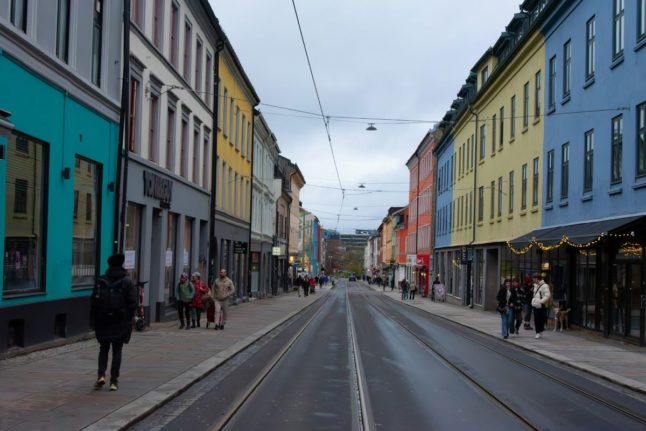The right-wing bloc that leads Oslo City Council will submit an application to the State Administrator to allow shops in the Norwegian capital to open on Sundays.
“We want to make Oslo even more vibrant,” culture and industry councillor Anita Leirvik North said.
“Giving shops in Oslo the opportunity to stay open on a Sunday can contribute to this,” she added.
According to the law, shops must be closed on Sundays, public holidays, and after 4pm on Christmas, Easter, and Whitsunday.
Some exceptions include convenience stores with a total sales area of up to 100 square meters and gas stations with a total sales area of up to 150 square meters.
Bars, restaurants, art galleries, temporary exhibitions, and trade fairs are typically allowed to remain open.
READ MORE: Why is everything in Norway closed on Sundays?
Another exception is for stores in a “typical tourist destination”. Around one in three Norwegian municipalities has this status.
Oslo’s city council will apply for this exception. This exception would also only apply to certain parts of the city, rather than the entire municipality.
Under the law, a “typical tourist destination” is one where the sales on Sundays are mainly made to tourists or non-residents of the municipality.
The last time a right-wing bloc was on the city council in Oslo, it also made several unsuccessful attempts to get the State Administrator to grant permission for stores to remain open.
“I think it is strange not to define Oslo as a tourist city,” North said.
The city council was still deciding which areas could potentially be exempt from the Sunday trading laws, according to public broadcaster NRK.
Union leader for retail workers Christopher Beckham told NRK that Sunday trading laws wouldn’t necessarily appeal to workers.
“If we open for Sunday trading, it will be more difficult for the employees to combine working life with family and leisure,” he said.
Meanwhile, the Oslo Business Association (Oslo Handelsstands Forening/OFH) said that opinion was divided among its members.
Oslo City Council will need to secure a majority vote for the proposal to send the proposals to the State Administrator.



 Please whitelist us to continue reading.
Please whitelist us to continue reading.
Member comments